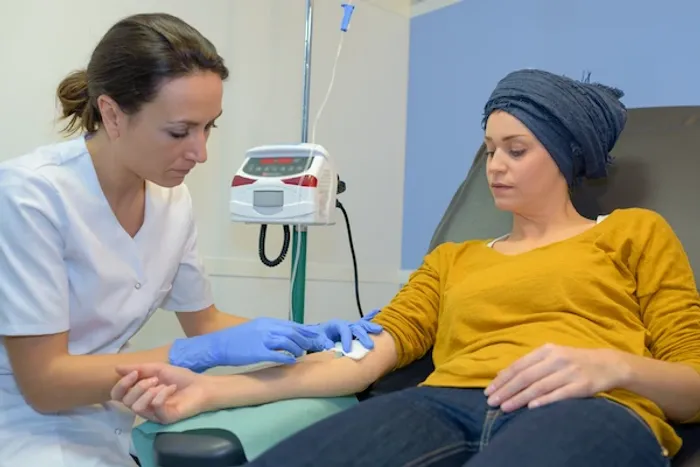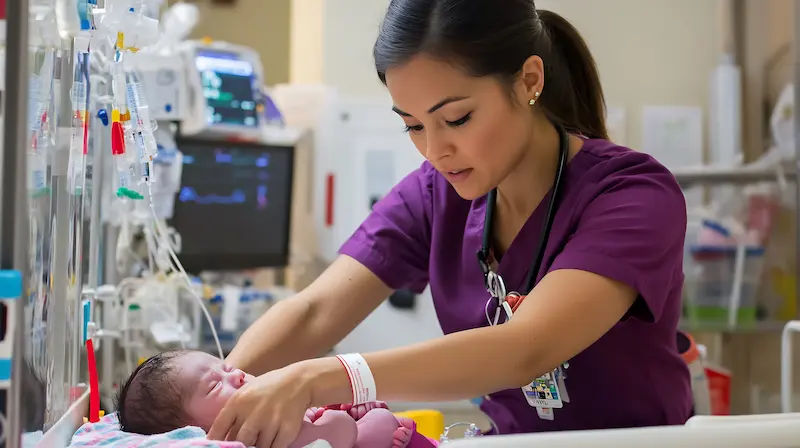Chemotherapy Myths Busted: Separating Fear from Fact
Discover the truth about chemotherapy. Learn how modern treatments are safer, more effective, and easier to manage than ever before—busting myths and replacing fear with facts.

Written by Dr. Dhankecha Mayank Dineshbhai
Reviewed by Dr. Md Yusuf Shareef MBBS
Last updated on 9th Oct, 2025

Introduction
The word "chemotherapy" often evokes a powerful and frightening image. For decades, it has been synonymous with severe illness, hair loss, and a diminished quality of life. These perceptions, largely shaped by outdated media portrayals and stories from a bygone era of medicine, have created a cloud of fear and misunderstanding around one of oncology's most vital tools. The truth is, the field of cancer treatment has advanced dramatically. Today, chemotherapy is more precise, more manageable, and more effective than ever before. This article aims to dismantle the common myths about chemotherapy, replacing anxiety with accurate information and empowerment. We will explore the realities of modern treatment, from managing side effects to understanding how chemotherapy is used not just as a last resort, but as a potent weapon for curing cancer and improving survival rates. Knowledge is power, especially when facing a cancer diagnosis, and it's time to separate fact from fiction.
Myth 1: Chemotherapy Is Always a Last Resort and Means There's No Hope
This is one of the most pervasive and damaging myths about chemotherapy. The belief that it's only offered when all else has failed can lead to unnecessary despair and even refusal of potentially life-saving treatment.
The Reality: Curative, Neoadjuvant, and Adjuvant Chemotherapy
In reality, chemotherapy serves multiple purposes, many of which are curative or aimed at long-term control.
- Curative Intent: For many cancers, such as certain lymphomas, leukaemias, and testicular cancer, chemotherapy is the primary treatment and has a high cure rate.
- Neoadjuvant Therapy: This is chemotherapy given before surgery. Its goal is to shrink a large tumour, making it easier to remove surgically and potentially allowing for less extensive surgery (e.g., breast-conserving lumpectomy instead of a full mastectomy).
- Adjuvant Therapy: This is chemotherapy given after surgery. Its purpose is to eliminate any remaining, undetectable cancer cells that could lead to a recurrence later on. This approach significantly improves long-term survival for cancers like breast and colon cancer.
A Powerful Tool in the Arsenal
Thinking of chemotherapy as a "last resort" is a misconception. It is a fundamental and often first-line component of a comprehensive cancer-fighting strategy. Oncologists carefully weigh the goals of treatment—whether it's cure, control, or palliation—and choose the most appropriate regimen accordingly.
Myth 2: Chemotherapy Guarantees Horrific, Unmanageable Side Effects for Everyone
The fear of debilitating side effects is a major source of anxiety. While side effects are a real part of chemotherapy, the idea that they are universally horrific and unmanageable is outdated.
The Advancements in Supportive Care
The last 20 years have seen a revolution in managing chemotherapy side effects. Doctors now have a wide array of powerful medications and strategies to prevent and control discomfort.
How Modern Medicine Manages Nausea and Vomiting
Modern antiemetic (anti-nausea) drugs are highly effective. Patients are often given these medications intravenously before their chemo infusion and sent home with prescriptions to manage any delayed nausea. This proactive approach means that severe vomiting is far less common than it was in the past.
New Approaches to Protecting Blood Cells
Chemo can lower blood cell counts, increasing the risk of infection, anaemia, and bleeding. Today, doctors use growth factor drugs that stimulate the bone marrow to produce white and red blood cells more quickly, reducing the duration and severity of these lows.
Side Effects Are Variable and Temporary
It's crucial to understand that not everyone experiences the same side effects. The type and severity depend on the specific drugs, the dosage, and the individual's overall health. Furthermore, most side effects are temporary and subside after treatment ends. Open communication with your healthcare team is key—if symptoms persist beyond two weeks, consult a doctor online with Apollo24|7 for further evaluation and adjustment of your supportive care plan.
Myth 3: You Will Definitely Lose All Your Hair
Hair loss, or alopecia, is perhaps the most visible symbol of chemotherapy. However, it is not a guaranteed outcome.
Not All Chemo Drugs Cause Alopecia
Whether or not you lose your hair depends entirely on the specific chemotherapy drugs used. Some drugs cause significant hair loss, while others cause only thinning, and some have no effect on hair at all. Your oncologist can tell you what to expect based on your treatment plan.
Scalp Cooling Caps: A Game-Changer in Preventing Hair Loss
One of the most exciting advancements is scalp cooling technology. Systems like DigniCap and Paxman cool the scalp significantly before, during, and after treatment. This constricts blood vessels in the scalp, reducing the amount of chemo drug that reaches the hair follicles. While not 100% effective for everyone, these caps have allowed many patients to retain a significant portion of their hair, providing a tremendous psychological boost. How to prevent hair loss during chemo is now a valid and productive conversation to have with your care team.
Myth 4: Chemotherapy Means You're Contagious or Need to Be Isolated
This myth stems from a misunderstanding of how chemotherapy works. The treatment itself cannot be "caught" like a virus.
Understanding the Real Risk: A Weakened Immune System
The concern about isolation is actually reversed. It's not that the patient is contagious; it's that the patient's immune system may be weakened (due to low white blood cell counts), making them more vulnerable to infections from others. During certain phases of treatment, your doctor may advise you to avoid large crowds or sick individuals to stay safe.
Safety Guidelines for Friends and Family
You can still hug, kiss, and have close contact with loved ones. The chemotherapy drugs leave the body primarily through urine and stool within 48-72 hours after treatment. Simple precautions, like flushing the toilet twice and washing hands thoroughly, are usually sufficient. There is no need for prolonged social isolation.
Myth 5: Once You Start Chemo, Your Life is Completely on Hold
Many people imagine that working during chemotherapy treatment is impossible and that life becomes a cycle of hospital visits and bed rest. While treatment requires adjustment, it doesn't have to mean putting your life on hold.
Integrating Treatment into Your Life
Many patients continue to work, either full-time or on a modified schedule. Chemotherapy schedules often involve infusion days followed by recovery periods. Many people find that maintaining their routine, hobbies, and social connections as much as possible is beneficial for their mental health.
The Importance of Normalcy and Mental Well-being
Staying active, within the limits of your energy, can actually help reduce fatigue and improve your sense of well-being. The goal of modern oncology is not just to treat the cancer but to preserve your quality of life during cancer treatment. If you are unsure about your activity levels, discussing a balanced plan with your doctor is always recommended.
Myth 6: All Chemotherapy is the Same
The term "chemotherapy" is not a single entity but an umbrella term for a diverse group of cancer-fighting drugs.
A Spectrum of Treatments: From Traditional IV to Oral and Targeted Therapy
Cancer treatment isn’t one-size-fits-all—there are several approaches that work in different ways to target the disease:
- Traditional IV Chemo: This is what most people picture—drugs given through a vein to kill fast-dividing cells throughout the body.
- Oral Chemotherapy: Many newer chemo drugs come in pill form, allowing patients to take their treatment at home with greater convenience.
- Targeted Therapy: These drugs are designed to specifically target cancer cells based on their genetic mutations, often sparing healthy cells and causing different, sometimes milder, side effects.
- Immunotherapy: This treatment boosts the body's own immune system to fight cancer and is a distinct category from traditional chemotherapy.
The Era of Personalised Medicine
Today, treatment is highly personalised. Oncologists use genetic testing of the tumour to determine the most effective cancer treatment plan. This means two people with the same type of cancer might receive completely different regimens. The difference between chemo and radiation and other modalities is also significant; they are often used in combination for the best outcome.
Conclusion
The landscape of cancer treatment has evolved, leaving many of the frightening myths about chemotherapy in the past. While it remains a challenging journey, modern chemotherapy is a far cry from the blanket of horror it's often made out to be. It is a sophisticated, nuanced, and increasingly effective tool wielded with greater precision and compassion than ever before. Understanding the realities—the manageable side effects, the personalised approaches, and the potential for cure and long-term control—is the first step in replacing fear with empowerment. If you or a loved one is facing a treatment decision, have an open and honest conversation with your oncology team. Ask questions, voice your concerns, and lean on the vast resources available for support. Armed with accurate information, you can approach your treatment with clarity and confidence. If your condition does not improve after trying these methods, book a physical visit to a doctor with Apollo24|7 to get personalised advice.
Consult an Oncologist for the best advice
Consult an Oncologist for the best advice

Dr Devashish Tripathi
Radiation Specialist Oncologist
20 Years • MBBS, PLAB, MRCP (UK)- General Medicine, FRCR (Oncology), Certificate of Completion of Training (CCT)- Clinical Oncology
Delhi
Apollo Hospitals Indraprastha, Delhi

Dr. Praveen Kumar Garg
Surgical Oncologist
26 Years • MBBS, M.S.(Gen.Surg.), M.Ch.(OncoSurg.)
Delhi
Apollo Hospitals Indraprastha, Delhi
(50+ Patients)

Dr. Amit Choraria
Surgical Oncologist
18 Years • MBBS, MS (Surgery) Fellow, Surgical Oncology, Tata Medical Center (FSO) Fellow, European Board of Surgery (Surgical Oncology) (FEBS) Fellow, Minimal Access Surgery (FMAS) Fellow, Indian Association of Gastrointestinal Endosurgeons (FIAGES) UICC Fellow, Royal Marsden NHS, London, UK Visiting Scholar, Plastic Reconstructive Surgery, CGMH, Taiwan Fellow, Robotic Surgical Oncology, Vattikuti Foundation, USA
Kolkata
Apollo Multispeciality Hospitals , Kolkata, Kolkata

Dr. Gopal Kumar
Head, Neck and Thyroid Cancer Surgeon
15 Years • MBBS, MS , FARHNS ( Seoul, South Korea ), FGOLF ( MSKCC, New York )
Delhi
Apollo Hospitals Indraprastha, Delhi
(25+ Patients)

Dr. Vishal Choksi
Head and Neck Surgical Oncologist
20 Years • American Head & Neck Society (AHNS) certified from Memorial Sloan-Kettering Cancer Centre, American Board of Surgery (ABS) certified general surgeon, MBBS (India)
Ahmedabad
Apollo Hospitals Gandhinagar, Ahmedabad
More articles from General Medical Consultation
Frequently Asked Questions
Is chemotherapy painful?
The infusion itself is usually not painful; it's similar to receiving fluids through an IV. Some drugs can cause a temporary cold sensation or minor discomfort. The side effects that follow (like mouth sores or nerve pain) can be uncomfortable, but your medical team will have strategies to manage them.
How long does a typical chemotherapy session last?
This varies widely, from 30 minutes to several hours, depending on the specific drugs, pre-medications, and hydration needs. Your first session might be longer as the staff monitors you closely for any reactions.
Can I drive myself to and from chemotherapy appointments?
It's generally recommended not to drive yourself, especially after your first treatment. The pre-medications can cause drowsiness, and you may feel fatigued. Arrange for a friend, family member, or taxi service.
What should I eat during chemotherapy?
Focus on a balanced diet to maintain your strength. Small, frequent meals can be easier to manage than large ones. If you have mouth sores, avoid spicy, acidic, or rough foods. A nutritionist can provide personalised advice. Apollo24|7 offers a convenient home collection for tests like vitamin D or HbA1c to help monitor your nutritional status during treatment.
Will chemotherapy affect my fertility?
Some chemotherapy drugs can affect fertility in both men and women. This is a critical topic to discuss with your oncologist before starting treatment. Options like sperm banking or egg/embryo freezing can be explored to preserve fertility for the future.




